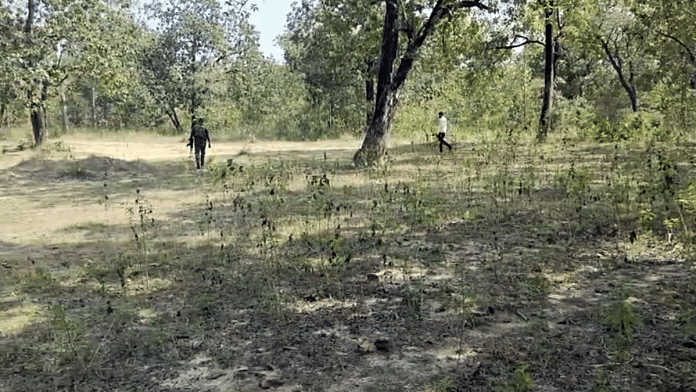Thank you dear subscribers, we are overwhelmed with your response.
Your Turn is a unique section from ThePrint featuring points of view from its subscribers. If you are a subscriber, have a point of view, please send it to us. If not, do subscribe here: https://theprint.in/
Bijapur district in Chhattisgarh, for past few years has been in the news for all wrong reasons. As per the South Asia Terrorism Portal, in last three months only, there have been approximately 30 to 35 Maoist terror related violence in the district. The latest in series being three back to back setback to the insurgents on March 27, April 2 and 5, killing 23 Maoists. The see-saw of such incidents with security forces too suffering setbacks at times, continues in a relentless manner. The challenge of Maoism in the country has been carrying on for last 56 years in various hues covering different areas. Clearly, the military measures do not seem to be yielding much towards resolution. As corollary, something different has to be attempted and talking to the Maoists may be one such option.
Dandakaranya Special Zonal Committee (DKSZC) of CPI (Maoist) recently issued a press statement in relation to initiating a dialogue with the Government. In a press release issued by DSZC on March 15, the Maoists expressed their inclination to enter into a dialogue, subject to certain pre-conditions. The state Government has sent positive feelers, backed by encouraging public statements.
In the first week of March, CM offered dialogue with Maoists, promising to fulfil their legitimate demands for a normal life. Skepticism related to talks do prevail on both sides since similar initiatives earlier did not fructify as desired, however the present mood, even if subtle, needs to be carried forward, notwithstanding the negligible votaries in favour.
The press statement DSZC, released to the local media did not gain sufficient traction in the national media. There could be two reasons for the same. Firstly, due to the current lower indices of Maoist insurgency, the discussions in the context surface only during the times of insurgent strikes. Secondly, the impression that since being at their weakest at present, Maoists could be eradicated militarily and that there was no need to talk. It is however added that the arguments made by the opposers to talk are often more emotional than categorical.
The first argument put forward is that talking to insurgents is to give in to blackmail and encourage others to take up arms to achieve their aims. Here, the problem is not in talking to insurgents but it is, in giving in to them. It is argued that talking does not mean conceding to all of insurgents’ demands and that a settlement can always be negotiated through talks.
The second argument is that by talking to terrorists, the Government gives their organisations the legitimacy and publicity they crave for. However, as a flip side, it is added that making the talks fruitful has stakes for insurgents as well. If otherwise, the insurgent legitimacy suffers. With their bluff called out in case of failure of talks, the image that the Maoists attempt cultivating about themselves, suffers.
The third argument is that talking gives insurgents a chance to rest and gather strength for renewed offensive. This seems paradoxical at times and cannot be straight jacketed. Ceasefire as precondition to talks shall always be good for the Government and society. Also, ceasefire becomes challenging for insurgents with adverse effects on their morale and on their ability to restart the fighting.
Sincerity of Maoists in their stance vis-a-vis talks, could be a suspect but it is impossible to ascertain this until talks are initiated; shibboleths have to be shed. If the insurgents act in bad faith, the Government can always break the talks off and expose their insincerity. To have a prejudice prior to initiation of talks shall be against cause of peace.
At present, CPI (Maoist) is at its lowest ebb, and it may be that confronted with hard realities, they are exhibiting inclination to talk. The recent setbacks to Maoists in Bijapur do provide an opportunity for the State to avail. The Maoists are facing a leadership crisis. Non Adivasi leadership of the predominantly Adivasi rank and file, has depleted in numbers and the ones that are at the helm have aged. The organisation is without a second rung to take over the mantle, since the non-Adivasi leadership has seldom shown confidence in Adivasis for leadership role.
The pre conditions laid down by the Maoists may appear to be rigid, however even more rigid has been their stance of not recognising the Constitution. The very fact that the Maoists are tending towards talks, should be considered as an encouraging signal.
Finally, the Government has nothing to lose and it shall be something different that the dispensation shall be taking a dig at; unlike doing the same thing over and over again and expecting different results. The Adivasi who is the eventual sufferer in the ongoing conflict, certainly deserves a chance.
These pieces are being published as they have been received – they have not been edited/fact-checked by ThePrint.

